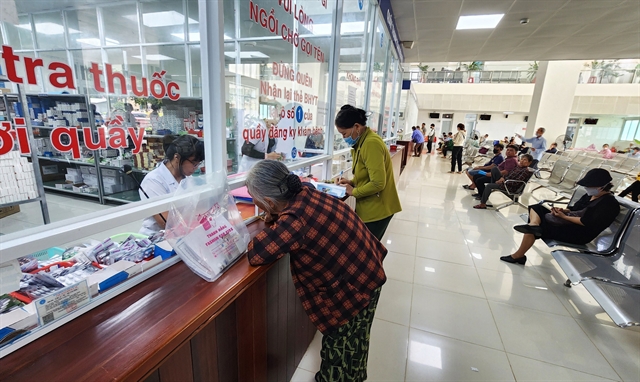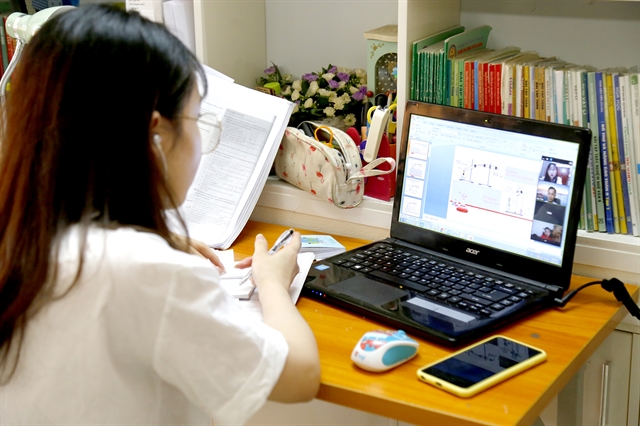 Opinion
Opinion


|
| A student studies online at home. —VNA/VNS Photo Nam Sương |
Dr. Nguyễn Thị Thu Huyền, former lecturer of Psychology at HCM City University of Education shared her thoughts on online learning with Tuổi Trẻ (Youth) online newspaper, in which she discussed the challenges and suggestions for teachers and parents in adapting to remote learning.
Effectiveness of online learning is a concern for many parents. What are your thoughts on this matter?
For secondary school students, the optimal method remains in-person learning, meaning it is the most effective. Due to the pandemic, however, schools across the globe were closed, posing an obvious risk to education. Online learning is an appropriate choice to ensure safety while still following the curriculum.
Choosing to opt out on this method is choosing to interrupt a child's education. UNESCO has spoken about this matter: for every month without contact with teachers, two months of learning are assumed to have been lost. The reason is when children stop learning, their knowledge will not remain the same and tends to be forgotten, so upon returning to school, they need to brush up on old skills and need twice as long to catch up with their peers. While remote and virtual learning will not be as effective as studying in the classroom, it is still better than nothing.
With your professional background and years of experience in online teaching, what would be your suggestions to help teachers quickly overcome the initial challenges and keep up with the demand of online learning?
We need to first agree that we have to choose remote and online learning if we want to maintain our children’s education. Therefore, in the face of challenges, regulators, educational institutions, teachers and parents must work together to bring the most optimal education to students.
Regulators need to issue documents and logical policies in regard to pedagogy, to offer support in terms of facilities and technology infrastructure for schools, teachers, and parents, especially in disadvantaged areas.
Schools need to offer training on virtual learning for their teachers, mobilising social organisations and families to work together in investing in computer labs and online learning equipment in order to support disadvantaged students.
For teachers, it is crucial to be open-minded, be ready to learn new things, and to put in the effort in designing new lessons, taking advantage of technology to ensure essential learning goals and content even in the limited time with their students.
Teachers should also be willing to arrange support for students who need tutoring to keep up with the class. In cases where parents go to work leaving children with no devices to study, it is possible to offer fifteen or twenty minutes of individual or small-group tutoring after school.
Assessment and evaluation should be conducted flexibly, without putting the pressure on both teachers and students. Teachers can pay close attention and ask questions during online lessons to check students’ understanding, or allow them to submit their assignments via different methods.
What can parents do to support their children in learning online?
They should support and offer assistance in their children’s online learning. We need to be fully aware that we cannot afford to choose the best, only the better. Parents therefore should lower their expectations that learning online would have the same effectiveness as in a physical classroom.
The nature of virtual learning is flexibility in time and space, therefore parents can allow children to pick their own study time after hours to fit the family routines. The main responsibility for parents is to facilitate time and space, encourage and supervise students in keeping a consistent studying schedule. Should they encounter any confusion regarding academic knowledge, parents should reach out to teachers for help.
What are the long-term values and effects of virtual learning?
Virtual learning is going to be a trend in the 21st century. COVID-19 compels us all to faster and better adapt to this form of learning to take advantage of the ever-increasing knowledge pool.
Children today are living in the digital era, learning can take place anytime, anywhere, anyhow, not just with their teachers as before. Therefore, if students can take advantage of virtual learning, they will acquire life-long learning skills. — VNS




